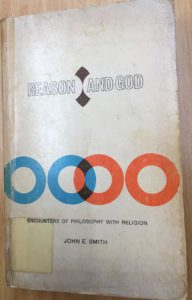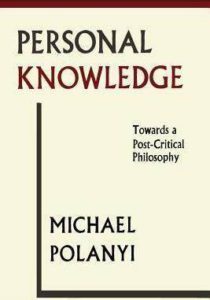
Philosophy and Religion– Seeking and Finding Truth
Religion is instituted by and continues to draw its life from the initial certainties arising from the experiences of its founders and heroes. Consequently, to proceed from the religious side means not so much the seeking after a truth yet undiscovered as the proclaiming of the meaning and importance of a truth already found. Philosophy, on the other hand, is born from wonder and from the quest of reason to find a pattern, a wisdom in things which is still to be disclosed. One side sets out from certainties; the other seeks to arrive at them. Viewed immediately, each side has its own distinctive and dominant character. This character, however, is not exhaustive; each side has within itself, as a kind of recessive element, the distinctive characteristic of the other, a similarity that becomes fully realized only when the two encounter each other; genuine encounter means that each enterprise is forced to a new level of self-consciousness. Religion discovers that its life is not exclusively a matter of certainties which exclude doubt and the rational quest; philosophy discovers that its life is not exclusively a search, because the rational quest itself must be carried out against a background of truths taken for granted and never fully justified in the course of any inquiry. Philosophy, moreover, comes to its own certainties when it comes to express its constructive results. Continue reading “Philosophy and Theology Reading 1/3”



 The problem of evil is arguably the most intractable problem facing the theist. The first challenge for the theist is the logical problem of evil which says that the set of propositions comprising the following – (1) An omnipotent God creates this world, (2) God is perfectly good, (3) This world is not perfectly good, i.e. evil exists – is an inconsistent set. Holding to any two of these propositions requires dropping the third to avoid the problem of contradiction. For example, that evil exists demands either God is good but not omnipotent (since he fails to prevent evil) or that God is omnipotent but not truly good (since he allows evil despite having the power to prevent it).
The problem of evil is arguably the most intractable problem facing the theist. The first challenge for the theist is the logical problem of evil which says that the set of propositions comprising the following – (1) An omnipotent God creates this world, (2) God is perfectly good, (3) This world is not perfectly good, i.e. evil exists – is an inconsistent set. Holding to any two of these propositions requires dropping the third to avoid the problem of contradiction. For example, that evil exists demands either God is good but not omnipotent (since he fails to prevent evil) or that God is omnipotent but not truly good (since he allows evil despite having the power to prevent it).